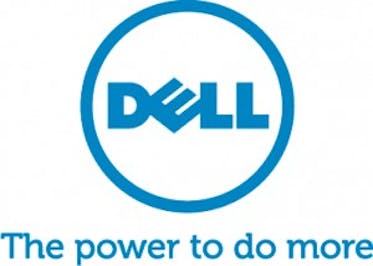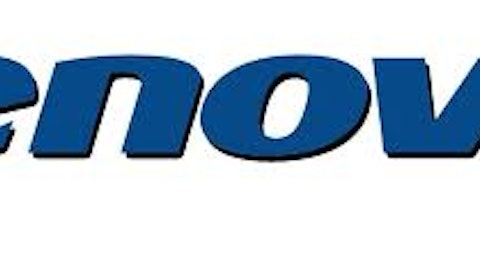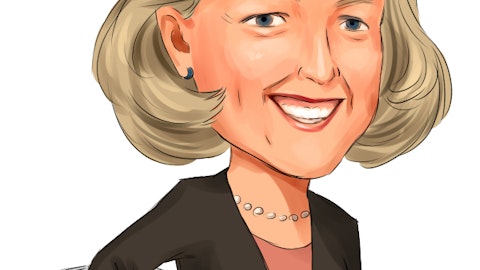After months of conflicting reports and vitriolic wrangling, there may finally be a resolution to the blockbuster bidding war over Round Rock, Texas-based Dell Inc. (NASDAQ:DELL). According to a recent announcement, Dell Inc. (NASDAQ:DELL)’s legendary founder has raised his offer for the struggling company by adding a special dividend to the mix.

However, the buyout’s principal rival remains unconvinced: Carl Icahn’s Icahn Enterprises LP (NASDAQ:IEP) has firmly registered its opposition. While it might be a bit premature to call this deal in favor of Michael Dell, it is clear that he is amassing an appreciable advantage.
Dell Inc. (NASDAQ:DELL), Icahn Enterprises LP (NASDAQ:IEP), and key competitors
Dell Inc. (NASDAQ:DELL) and Icahn Enterprises LP (NASDAQ:IEP) do not directly compete with one another. Icahn Enterprises LP (NASDAQ:IEP) is a diversified asset management firm that operates a wide, ever-changing portfolio of small and medium-sized companies across a range of industries. Although it currently has presence in the automotive, fashion, food processing, gambling, and real estate industries, it lacks any sort of presence in the technology industry. Its market capitalization of about $8.4 billion compares to much larger market caps of $24 billion for Dell Inc. (NASDAQ:DELL) and $52 billion for principal Dell competitor, Hewlett-Packard Company (NYSE:HPQ). In 2012, Icahn Enterprises LP (NASDAQ:IEP) earned $602 million on total revenue of $18.3 billion.
Meanwhile, Dell faces tough competition from a number of robust competitors. Moreover, it has an outdated product mix that is increasingly unattractive to modern consumers. In effect, it is being squeezed on all sizes. Whereas Hewlett-Packard Company (NYSE:HPQ) offers a number of high-end PC products for affluent consumers as well as powerful IT systems for small and medium-sized businesses, Dell has a reputation for selling cut-rate, low-quality computers and laptops.
While the company has ceded the high-end market to Hewlett-Packard Company (NYSE:HPQ), it faces undercutting from cheaper Asian competitors like Asus. Meanwhile, Dell and Hewlett-Packard Company (NYSE:HPQ) are both being outplayed by service-focused companies like IBM and Cisco. This whole going-private situation arose out of concern about Dell’s ability to re-tool its business as a public firm.
In any event, Dell’s 2012 earnings of $1.9 billion on $56.6 billion need to be improved. Fortunately, it is not in truly bad shape: Hewlett-Packard Company (NYSE:HPQ)’s 2012 loss of over $13 billion on $115.6 billion in revenue has its investors in a panic. Both companies have manageable debt loads of less than $2 for every $1 in cash on hand.
How the new deal is structured
Michael Dell’s new deal is valued at about $25 billion. The $13.75-per-share cash offer is roughly 10% higher than Dell’s original offer. In addition, the deal presents a “sweetener” in the form of a special dividend of $0.13 per share. All told, the new offer represents a premium of about 1.5% to Dell’s current share price of $13.65.
Criticism and benefits
Carl Icahn has leveled most of the criticism that this deal has received. In response to the news that Dell’s board had approved the deal, Icahn pronounced, “The war regarding Dell is far from over.” In particular, he takes issue with the way in which Dell’s board accepted the deal in an unusual closed-door session that occurred shortly after a regular shareholder meeting had been adjourned. Icahn’s next move is unclear.
Meanwhile, Dell’s offer promises a small arbitrage premium for patient investors and the assurance that the company will remain in the hands of its founder. Going forward, it seems likely that Dell will endure a prolonged period of private ownership under the guidance of Mr. Dell and Silver Lake Capital. However, the eventual IPO of a smaller, stronger Dell cannot be ruled out.
Additional hurdles
Given the positive reaction to Dell’s new offer, it seems likely that a majority of “non-Dell” shareholders will accept this deal. Since the board has already given its blessing, this would secure Michael Dell’s bid to take the company private and end the bidding war. However, Icahn has not lost all of his allies. He also has plenty of legal options available to him. His most recent statement hinted at the possibility of a legal challenge that centered around the questionable bending of Dell’s bylaws to allow a special board vote on the issue. The next few weeks could prove to be quite interesting.
Long-term outlook: Is the bidding war over?
While it would be unwise to regard the consummation of Michael Dell’s bid as an absolute certainty, it looks quite likely to occur. Investors may wish to position themselves accordingly. This would require an arbitrage-rich long position in Dell. More cautious investors may wish to hedge their bets with a long position in Icahn Enterprises LP (NASDAQ:IEP) or some other risk-sloughing vehicle. Regardless, this situation continues to interest investors, market-watchers, and pundits alike.
The article Is This Bidding War About to End? originally appeared on Fool.com is written by Mike Thiessen.
Mike Thiessen has no position in any stocks mentioned. The Motley Fool has no position in any of the stocks mentioned. Mike is a member of The Motley Fool Blog Network — entries represent the personal opinion of the blogger and are not formally edited.
Copyright © 1995 – 2013 The Motley Fool, LLC. All rights reserved. The Motley Fool has a disclosure policy.





